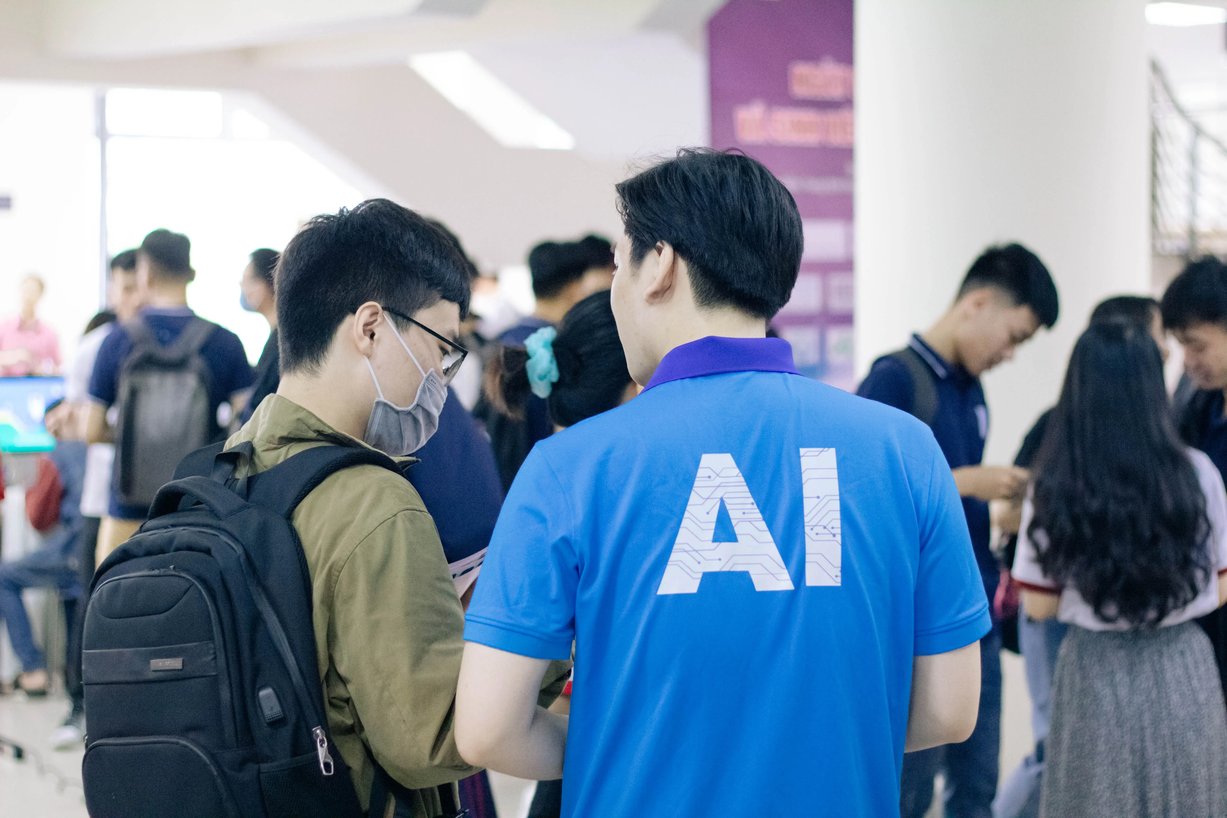
Maria Chojnowska
18 May 2023, 6 min read

What's inside
- AI Adoption Trends and Challenges
- Common challenges and barriers to AI adoption
- Benefits of AI adoption for businesses and society
- Future of AI Adoption and ChatGPT
- Conclusion
Artificial intelligence (AI) has been around for decades, but it is only in recent years that it has started to revolutionize various aspects of modern society. AI technology has made significant advances in areas such as healthcare, finance, transportation, and communication, among others. It has also become an essential tool for businesses, enabling them to make informed decisions, enhance customer experience, and automate various processes.
One example of successful AI technology is ChatGPT, a large language model developed by OpenAI. ChatGPT is based on the GPT-3.5 architecture, and it has been trained on a vast corpus of text data, enabling it to generate human-like responses to a wide range of queries. The technology has been adopted by businesses and individuals worldwide, providing them with an efficient and effective means of communication.
AI Adoption Trends and Challenges
AI adoption has been rapidly increasing across various industries in recent years. Here is an overview of the current state of AI adoption in some major industries like healthcare, finance, retail, manufacturing, and education.
AI is being used in healthcare such as medical imaging, drug discovery, and personalized medicine. AI-powered systems are helping doctors to analyze medical images and detect diseases like cancer at an early stage, thereby improving patient outcomes. AI algorithms are also being used to discover new drugs and identify potential side effects.
In finance AI is used for fraud detection, credit scoring, and risk management. AI algorithms can analyze large amounts of financial data to detect fraudulent activities and prevent financial crimes. Banks are also using AI-powered chatbots to provide personalized customer service and improve customer experience.
AI found its use in retail for inventory management, demand forecasting, and personalized recommendations. AI algorithms can analyze sales data and customer behavior to optimize inventory levels and reduce wastage. Retailers are also using AI-powered chatbots to provide customer service and answer customer queries.
In manufacturing AI is applied for predictive maintenance, quality control, and supply chain optimization. AI algorithms can analyze sensor data from manufacturing equipment to predict maintenance needs and reduce downtime. AI-powered systems can also analyze production data to identify quality issues and improve product quality.
AI is being used in education for personalized learning, student assessment, and administrative tasks. AI-powered systems can analyze student data to provide personalized learning recommendations and identify areas where students need help. Educational institutions are also using AI-powered chatbots to answer student queries and provide administrative support.
Bear in mind that AI adoption is still in the early stages in many industries, but its potential to improve efficiency and productivity is significant, and we can expect to see continued growth in the adoption of AI in the coming years.
Common challenges and barriers to AI adoption
Despite the many benefits of AI technology, there are several challenges and barriers that can hinder its adoption. Here are some common ones:
- Lack of expertise
One of the biggest barriers to AI adoption is a lack of expertise in the technology. AI requires specialized knowledge and skills, and many organizations may not have the resources or knowledge to implement it effectively.
- Data quality and availability
AI systems rely heavily on data, so the quality and availability of data is crucial. However, many organizations may not have the necessary data or may have poor-quality data that is not suitable for AI applications.
- Integration with legacy systems
Many organizations have legacy systems that are not compatible with AI technology. Integrating AI with these systems can be complex and time-consuming.
- Cost
Implementing AI can be expensive, particularly for small and medium-sized businesses. The cost of acquiring and training AI models, as well as the hardware and software required to support them, can be prohibitive.
- Regulatory and ethical concerns
AI technology raises many ethical and regulatory concerns, particularly around data privacy, bias, and transparency. Organizations must ensure that they comply with relevant regulations and ethical standards when implementing AI.
- Resistance to change
Finally, many organizations may be resistant to change or may not see the value in AI technology. This can make it difficult to get buy-in from stakeholders and implement AI successfully.
Benefits of AI adoption for businesses and society
The benefits of AI adoption are vast and can have a significant positive impact on businesses and society as a whole. Here are some of the key benefits:
- Improved Efficiency and Productivity
AI can automate many routine and mundane tasks, freeing up employees to focus on more strategic and high-value activities. This can lead to increased efficiency and productivity, as well as cost savings.
- Enhanced Customer Experience
AI-powered chatbots and virtual assistants can provide 24/7 support, answer customer queries, and provide personalized recommendations. This can result in improved customer satisfaction and loyalty.
- Better Decision Making
AI can analyze large amounts of data and provide insights that humans may not be able to detect. This can help businesses make more informed and data-driven decisions.
- Increased Accuracy
AI algorithms can perform complex calculations and predictions with a high degree of accuracy, reducing errors and improving outcomes.
- New Opportunities and Innovations
AI can open up new business opportunities and enable innovation by providing new insights, automating processes, and creating new products and services.
- Societal Benefits
AI can be used to address societal challenges, such as improving healthcare outcomes, reducing environmental impact, and enhancing public safety.
Future of AI Adoption and ChatGPT
As AI technology continues to advance, the adoption of AI is likely to increase across various industries. This presents significant opportunities for businesses to improve efficiency, reduce costs, and enhance customer experiences. ChatGPT, as a language model, is also expected to evolve and become more sophisticated, with the potential to be used in new and innovative ways.
However, as with any new technology, there are also risks and challenges that need to be addressed. As businesses and organizations continue to adopt AI, it is important to ensure that the technology is used in a responsible and ethical manner, with appropriate safeguards in place to protect the privacy and security of individuals.
ChatGPT, in particular, has been a great success in terms of its capabilities and potential applications. As it continues to evolve and improve, it is likely to become even more useful and valuable in various industries, from customer service and marketing to healthcare and education.
Conclusion
By embracing AI technology, businesses can streamline their operations, reduce costs, increase efficiency, and make data-driven decisions that can lead to better outcomes. AI can also help organizations to better understand and serve their customers, as well as develop new products and services that meet emerging needs.
However, it is crucial that businesses and organizations approach AI adoption with caution and care. This means ensuring that AI systems are transparent, explainable, and accountable, and that they are designed and implemented with a focus on ethical considerations such as fairness, safety, privacy, and security.
Moreover, businesses and organizations should prioritize diversity and inclusivity in their AI development teams to avoid perpetuating bias and discrimination in AI systems. They should also invest in training and education to ensure that their employees have the necessary skills and knowledge to work with AI systems effectively.
In summary, AI technology has the potential to revolutionize the way businesses and organizations operate, while also improving society as a whole. By embracing AI technology in a responsible and ethical manner, businesses can unlock its full potential for the benefit of all.


